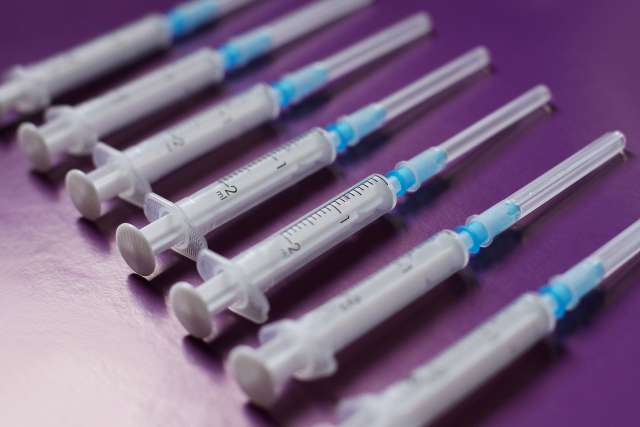Respiratory diseases increase in the fall, so it’s more important than ever for people who are eligible but have not yet gotten their COVID-19 vaccine to do so now. Fall is also the time to get the flu vaccine. Daniela Delgado, MD, a UCLA family medicine physician in Beverly Hills, and Jose Soza, MD, a UCLA family medicine physician in downtown Los Angeles, discuss the safety of getting the COVID-19 vaccine simultaneously with other vaccines and what other vaccines might be due.
What are the recommendations about administering the COVID-19 vaccine with other vaccines? “The COVID-19 vaccine may be administered along with other vaccines,” Dr. Delgado says. “Out of an abundance of caution, the Centers for Disease Control and Prevention (CDC) originally recommended a 14-day interval between administering the COVID-19 vaccine and any other vaccines. But once they collected enough data, the CDC affirmed the safety of coadministering vaccines.” Dr. Soza adds that “certain vaccines that are associated with localized reactions, such as swelling or redness, can be given in different limbs. These include COVID-19, human papillomavirus (HPV), shingles and tetanus.”
Why don’t multiple vaccines overwhelm the immune system? “There isn’t a cumulative effect for the immune system, which is built to constantly react and respond to multiple triggers,” Dr. Soza says.
What vaccines might adults need? Dr. Delgado notes that adults need a tetanus, diphtheria and pertussis (Tdap) or tetanus and diphtheria (Td) booster vaccine every 10 years. Young adults may need a human papillomavirus (HPV) vaccine if they didn’t receive one during their teen years. Upon reaching age 50, adults should get a shingles vaccine, which is administered in two separate doses. Pneumonia shots start at age 65 or earlier for those with certain health conditions. “COVID-19 and shingles vaccines may cause fatigue, low-grade fever and muscle aches in some individuals,” Dr. Delgado says.
What about vaccines for adolescents and children? At press time, the COVID-19 vaccine is authorized for adolescents ages 12 to 17. “They may a lso need a meningococca l vaccine and potentially a Tdap or Td booster,” Dr. Delgado says. “They may also get the HPV vaccine in that time frame if they have not completed the series previously.”
What about the flu vaccine? “The flu is highly transmissible , ” Dr. Soza says. “In addition to making people feel miserable, the flu can be fatal. According to the CDC, the flu kills an average of 36,000 people each year.” He emphasizes the importance of getting the flu vaccine in September or October, before flu season reaches full force, and reiterates the safety of getting a flu shot at the same time as a COVID-19 vaccine.
What else is important to know about vaccines? Drs. Delgado and Soza note that people with allergies, including allergies to medications or who have reacted to other vaccines in the past, can most often safely receive the COVID-19 vaccine, but they should speak with their physician. “It is very important for everyone to get their COVID-19 vaccine, as well as their regular preventive vaccines,” Dr. Delgado says. “Now is the time to get a physical and get current on any needed vaccines.” Adds Dr. Soza, “Patients who are hesitant about having multiple vaccines at once, or who have any other concerns about vaccination, should always feel comfortable reaching out to their physician. We want them to feel confident about their decisions.”

